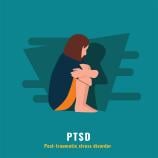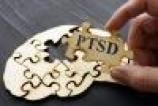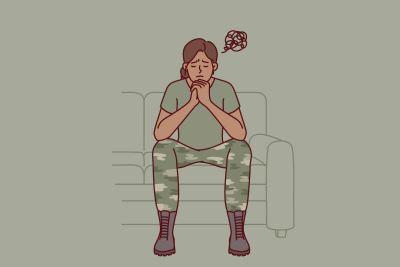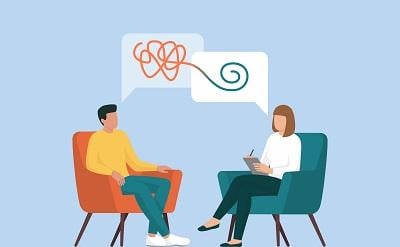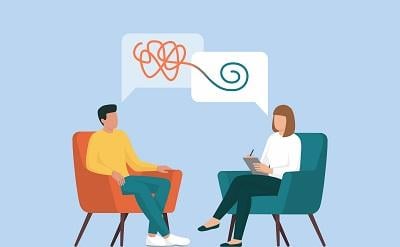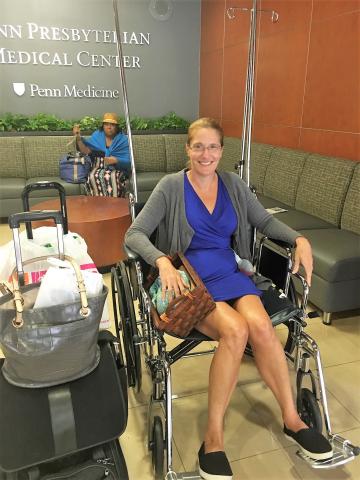Understanding the Complexity of Complex PTSD (CPTSD)
 Growing up in Japan with a workaholic surgeon father and an often-absent socialite mother, I was raised by a revolving cast of caregivers who worked at my father's hospital. An unstable home environment and lack of a consistent caregiver created in me a melancholic, anxious child prone to insomnia. From first grade, I attended a brutally competitive private school in Tokyo that required long, suffocating train commutes. All these factors exacerbated my fears and anxiety. Eventually at age 17, I was admitted involuntarily to a mental hospital for a psychotic episode. The doctors attributed its cause to parental neglect and family dysfunction.
Growing up in Japan with a workaholic surgeon father and an often-absent socialite mother, I was raised by a revolving cast of caregivers who worked at my father's hospital. An unstable home environment and lack of a consistent caregiver created in me a melancholic, anxious child prone to insomnia. From first grade, I attended a brutally competitive private school in Tokyo that required long, suffocating train commutes. All these factors exacerbated my fears and anxiety. Eventually at age 17, I was admitted involuntarily to a mental hospital for a psychotic episode. The doctors attributed its cause to parental neglect and family dysfunction.
When I left Japan for America at age 22, I began to thrive in a healthier environment and thought the painful past was behind me. Until it wasn't. When my son started to exhibit adolescent emotional outbursts and symptoms of anxiety and depression at about the same age I’d been hospitalized, the past reemerged with intensity. Overwhelmed by a stream of daily stresses and worries, as well as the onset of menopause, I regressed into a bunker-like mentality and childish coping mechanisms, threatening to undo all I'd hoped for and achieved.
Initially I was diagnosed by a psychiatrist with GAD (generalized anxiety disorder) who prescribed medication, which did help some. While she agreed that I had experienced some childhood trauma and mentioned PTSD, she did not at first say it was complex PTSD. But doing research for a memoir I was writing and being curious about mental health disorders, as well as wanting to learn more about what I was going through, I discovered complex PTSD.
The term and concept of “complex PTSD” was first introduced in 1988 by Dr. Judith Herman, a Harvard psychiatrist whose work helped raise awareness of the strong association between childhood adversity and its long-term impact on physical and mental health in adult years. While recognized as a diagnosis by the World Health Organization and countries like the United Kingdom, many US mental health professionals still do not diagnose it as CPTSD.
Ultimately, I was able to break the cycle of generational trauma through self-examination that helped me overcome my victim mentality. I began to understand that when a child – already in a vulnerable formative stage - is exposed to repeated and prolonged stress, their brain and nervous system can be altered in a way that makes them more susceptible to future stress and challenging situations. I chronicled this journey in my debut memoir, The Pond Beyond the Forest, but it was not until I finished writing this book that I discovered what had been ailing me all these years actually has a name: complex PTSD (CPTSD).
My symptoms, such as negative thinking, toxic shame and guilt, a vicious inner critic and a sense of unworthiness, seemed to fit the diagnosis. To me, it explained why my brain and body, even at the slightest trigger, tend to tense up and immediately kick into survival mode. A few years later, that same psychiatrist agreed it could be CPTSD.
When it comes to finding appropriate care, it can sometimes feel challenging. Obstacles like accessibility, affordability, cultural sensitivity, and a lack of well-qualified, trauma-informed therapists who know how to treat developmental trauma may seem overwhelming. But there is information out there and mental health professionals are becoming more and more conscious of the need to provide evidence-based care and treatment for CPTSD.
While the Internet is full of help and advice, which to me indicates a move to try to fill a gap, educate the public, and offer support to CPTSD sufferers, I recommend seeking professional help. The right knowledge is crucial and organizations like ADAA provide scientific, timely, user-friendly research, support, and community. Something I did not have for a long time. And something I've found personally helpful is writing my story and learning about others’ challenges and triumphs.
- Share Your Story and Voice and Help #breakthestigma Around Mental Health
- Support ADAA's Mission - Every Gift Makes an Impact
- Join an ADAA Online Peer to Peer Support Community
- Find Your Therapist
